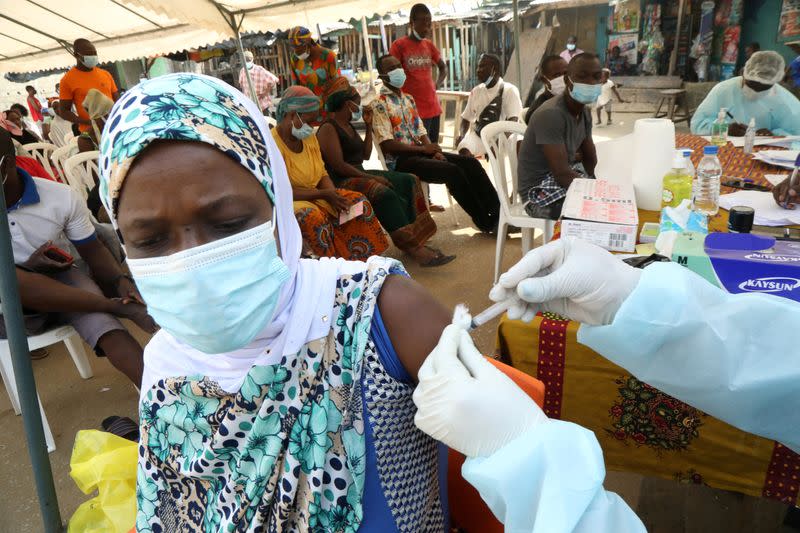New scheme aims to get vaccines to outbreaks faster - Gavi

By Jennifer Rigby
LONDON (Reuters) - Three global health bodies are teaming up to investigate stockpiling experimental vaccines for rare infectious diseases so the shots can be tested more quickly when outbreaks happen, a top official from vaccine alliance Gavi told Reuters.
The initiative will be led by Gavi, the World Health Organization (WHO) and the Coalition for Epidemic Preparedness Innovations (CEPI), and is likely to be announced later on Tuesday after Gavi’s board approved it at a meeting earlier in the day.
It will focus initially on Marburg and the Sudan strain of Ebola, after outbreaks of the two deadly viral haemorrhagic fevers in Africa last year. There are no existing vaccines or proven treatments available for either of the infections.
If successful, the scheme – known as the global virtual pooled inventory (GVPI) – could be a pilot for other deadly diseases and wider pandemic preparedness, officials said, which are an increasing threat due to factors like climate change.
In Uganda last year, 55 people died in the Ebola outbreak and there were 142 confirmed cases, according to WHO. Equatorial Guinea and Tanzania saw 25 confirmed Marburg cases and 18 deaths in total. There were a further 23 probable cases, all of whom died, in Equatorial Guinea, which had never experienced Marburg before.
While the governments moved fast with global partners to try to set up human trials of new vaccines, the outbreaks were halted with other public health measures, like testing and isolating patients, before trials could properly begin.
While that speed clearly saved lives, it also meant that the world was not really any closer to having effective vaccines available to help tackle future outbreaks, said Aurelia Nguyen, chief programme strategy officer at Gavi.
“We’ve had the lesson with Ebola Sudan and with Marburg,” she told Reuters. “Think about a mechanism where we have the ability to secure some doses of an investigational vaccine ... in a way that actually gets us ahead of the outbreak.”
The details of the plan are still being worked out, but Nguyen said it could work with Gavi and partners agreeing deals ahead of time, where manufacturers commit to providing a certain number of vaccine doses very quickly when outbreaks begin. A similar model worked for another Ebola strain, Zaire.
Vaccines for Ebola Sudan are under development by companies and researchers including Oxford University and the Serum Institute of India as well as the International Aids Vaccine Institute (IAVI) and Merck, and the Sabin Institute. The latter is also working on a Marburg vaccine, among other companies and institutions.
Vaccines would need to have been tested for safety and whether they induced an immune response in humans - usually phase II trials - before being included in the stockpile, said Nguyen.
(Reporting by Jennifer Rigby; Editing by Mark Potter)

